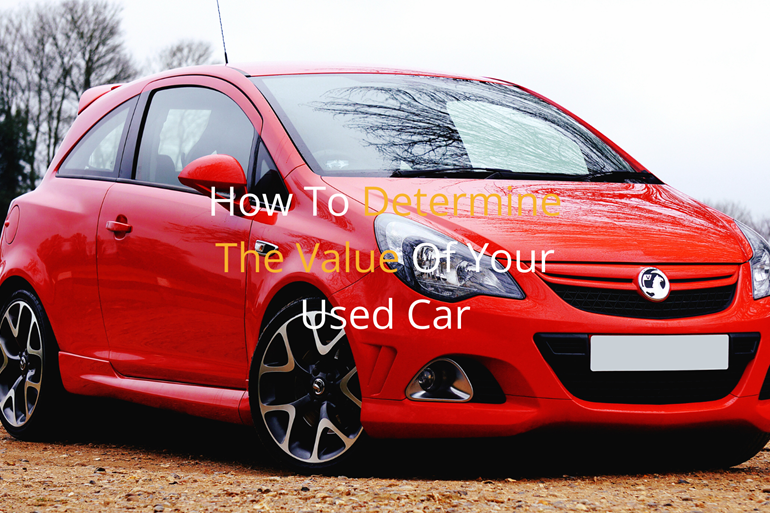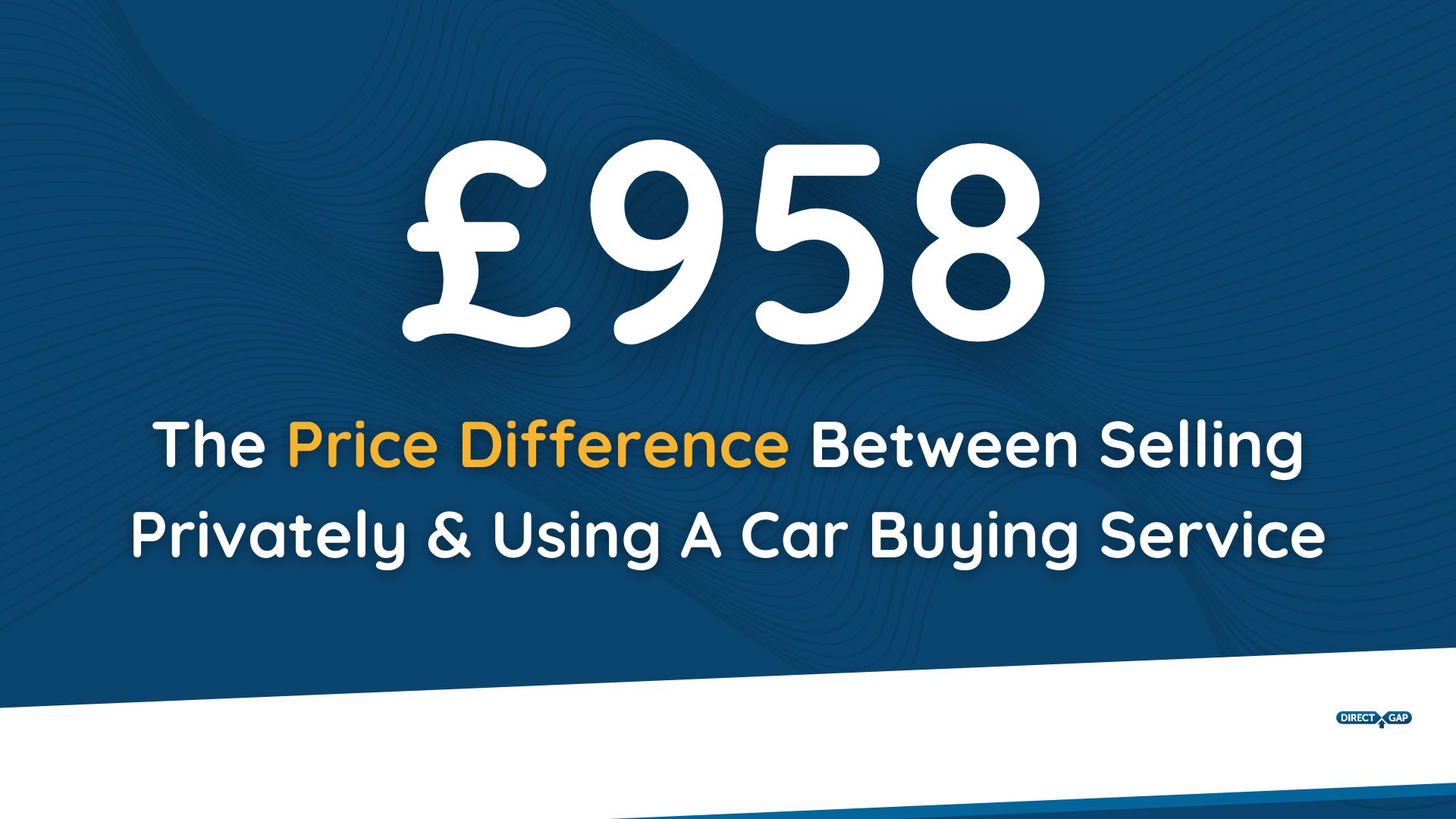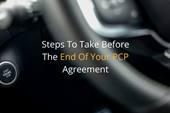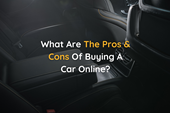
How To Determine The Value Of Your Used Car
Looking To Sell Your Car But Not Sure How Much It’s Worth? Here’s How To Figure It Out…
Quick Links
- 1 Minute Read
- Introduction
- Which Used Cars Hold Their Value?
- Can Used Cars Get Gap Insurance Or A Warranty?
- How To Determine The Value Of Your Used Car
- Our Final Word
1 Minute Read
Getting your car’s value right is crucial; price too low and you lose money, too high and it won’t sell. The good news: a few simple steps can give you an accurate figure.
Start with online valuation tools (like What Car? or Auto Trader) to get ballpark private, part-exchange, and dealer values. Then compare with real-world listings to see what similar cars are actually advertised for.
Factor in condition and mileage honestly; dents, scuffs, and gaps in service history all reduce value. Timing matters too: convertibles sell better in summer, 4x4s in winter, and plate-change months (March/September) often see price shifts.
If you’re still unsure, get a professional valuation; just expect dealers to quote on the lower side. And don’t forget: if the car’s on finance, request a settlement figure before selling; you can’t legally pass it on until the balance is cleared.
Bottom line: Combine tools, market research, and a reality check on condition, and you’ll know your car’s true worth and sell with confidence.
Introduction
Whether you’re selling privately, part-exchanging at a dealership, or simply curious about the value of your car, knowing its worth can be essential.
Get it wrong and you risk leaving money on the table, or worse, pricing it so high it doesn’t sell at all. The good news? There are clear, practical steps you can take to get an accurate picture.
In this guide, we’re covering every option you have so you can get an accurate picture of your car’s value. First, though, let’s look at some of the basics.
Which Used Cars Hold Their Value?
Carwow has a pretty comprehensive list of car manufacturers that hold their value the most. Here’s the full list:
- MG
- Porsche
- Honda
- BMW
- Volvo
- Mercedes
- Audi
- Dacia
- Lexus
- Jaguar
That said, it’s worth remembering that whilst some brands may carry a little more weight when it comes to the used car market, the resale value of cars can fluctuate on an individual basis.
Factors such as mileage, wear and tear, servicing and damage will have just as much impact on your car’s resale value as the make and model. For more information, take a look at our guide: Why Do Cars Depreciate?
Can Used Cars Get Gap Insurance Or A Warranty?
Yes. In fact, most dealerships sell both Gap Insurance and Extended Warranties as add-on products as part of their usual used car sales pitch.
There are a couple of things to keep in mind, though. When it comes to Gap Insurance, not all policies are suitable for used cars, especially those on the older end of the spectrum. What’s more, not all policies work for all types of financing.
Consider RTI insurance and Vehicle Replacement Insurance if your car is between 8 and 10 years old.
Warranties are available for used cars, too, but be sure to check whether the car you’re buying is still under a manufacturer's warranty. If you do decide to take on a third-party warranty, check the stipulations for servicing. Many policies (particularly those sold through a dealership) insist on servicing through their network.
Lastly, when it comes to both Gap and Warranties, you don’t need to buy through a dealership! You’ll find better value, better policies and better options online.
Read more: Why You Shouldn’t Take Out Gap Insurance From Your Motor Dealer.
How To Determine The Value Of Your Used Car
Why Car Valuations Matter
Used car prices aren’t static; they’re influenced by everything from mileage and service history to market demand and even seasonal trends. For instance, ‘soft-tops’ (convertibles) often fetch higher prices in the spring and summer, while 4x4s are more sought after in the colder months.
According to Auto Trader, even subtle changes in supply and demand can shift your car’s value by hundreds of pounds.
By getting a proper valuation, you’ll not only know what price to set but also give yourself a stronger position when negotiating with dealers or buyers.
Start With Online Valuation Tools
The quickest way to get a ballpark figure is through online car valuation tools. Services like What Car? allow you to enter details such as your car’s registration, mileage, and condition to provide an estimated price. These aren’t final numbers, but they’re a great starting point.
Online tools usually give three key values:
- Private Sale Value: what you might expect to get selling directly to another driver.
- Part Exchange Value: the amount a dealer might offer when you trade in against another car.
- Dealer Retail Value: what the car could fetch on a forecourt.
If you’re getting an online valuation with a company that offers to buy your car, remember, you’re probably not going to get the advertised price once you take your car in for viewing.
According to Autotrader, if you sell through a car buying service such as We Buy Any Car, you’ll get around £958 less than if you sold privately.

Read more: Should I Trade In Or Sell My Car Privately?
Factor In Condition And Mileage
Your car’s condition can make or break its value. A well-maintained vehicle with a full service history will always command more than one with gaps or visible wear and tear. High mileage, unsurprisingly, drags the price down too, though some models are more resilient than others.
The RAC notes that cars with above-average mileage can lose value much quicker than their lower-mileage counterparts. Be honest with yourself. If your alloy wheels are scuffed or there’s a dent in the bumper, factor it in; buyers certainly will.
Look At Market Listings
It’s one thing to check valuations, but it’s another to see what similar cars are actually being advertised for. Take a look at sites like Motors.co.uk to compare vehicles with the same make, model, year, and mileage. This gives you a real-world sense of what buyers are willing to pay.
Keep in mind, advertised prices aren’t always the same as final sale prices, but they do reveal current market expectations.
Consider Timing
The used car market fluctuates throughout the year. For example, sales often spike in March and September when new number plates are released, meaning there’s usually more supply (and more competition).
According to The Society of Motor Manufacturers and Traders (SMMT), broader economic factors such as supply chain shortages can also affect used car values, sometimes pushing them higher than expected.
Get A Professional Opinion
If you’re still unsure, some dealers and garages offer in-person valuations, usually free of charge.
This can be particularly useful if you’re planning to part-exchange, as it gives you a clearer idea of what they’re willing to offer. Just remember, their figure may be on the lower side because they’re aiming to resell at a profit.
Don’t Forget Outstanding Finance
If your car is on a PCP or HP agreement, you’ll need to request a settlement figure from your finance company before selling. This ensures you know whether your car’s value will cover the remaining balance.
Selling without clearing the finance first isn’t legally allowed, unless the buyer is aware and pays the finance company directly. The Financial Conduct Authority offers guidance around these agreements and your rights.
Read more: Buying, Selling & Trading In A Car With Outstanding Finance.
Our Final Word
Determining the value of your used car isn’t about picking a number out of thin air. It’s a combination of online valuations, honest assessments of condition, a look at the wider market, and an awareness of timing.
Get those pieces in place, and you’ll have a realistic idea of what your car is worth, making you a more confident seller, trader, or buyer.
Enjoyed reading? Don’t forget to share this with your friends. You can even pin it using our Pinterest friendly image below!
Pin It!













